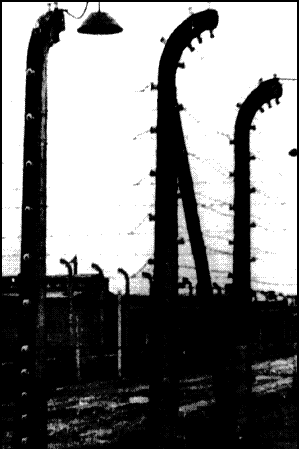Fred Wander
Michael Hoffman,
Translator
(Norton)

As we all know by now, concentration camp literature in specific and holocaust literature in general need a writer of special talent, one who is able to meld the unquestionable horror of it all with something that spares the reader from simply dropping out. Unrelieved misery can make dramatic literature but it does not necessarily make great literature.
The events of 1933 form a breathtaking turn of history, not only for Germany, but for humanity. Those of us who came of age in the last part of the 20th century now know that under a façade of books and music and culture lay the reality of a "civilized" people turning brutish almost overnight.
There have been other virulent plunges into obscene violence by other not unenlightened cultures. Spain, home to Goya, Cervantes and Lope de Vega was able to maim, sicken and destroy over five million indigenous peoples in the New World in the sixteenth century. The Turks put a million Armenians to death in 1919, and the Japanese Greater Co-Prosperity Sphere took the lives of more than six million Orientals from China, Korea, Laos, Burma, Formosa and the island republics of the Far East between 1935 and 1945.
Still, there are few books that can convey the grisly nature of a conscious murder of a whole peoples represented by the Holocaust. One of the most artful is André Schwarz-Bart's The Last of the Just. Another is Szymon Lak, who gave us the woeful and yet, at times, almost merry Music of Another World (he was a violinist at Birkenau and, for some reason, the musicians were protected from the worst excesses of organized murder.) There are occasional modernist poems such as Ravensbrück and Death Fugue that can capture the aftermath of camp experiences.
Fred Wander's The Seventh Well is as powerful, makes the reader willing to continue with asides that blend despair with poetry, even comic joy. He speaks of the "idyllic" forest at Krähwinkel, where "a band played notorious ballads 'O Donna Klara' or 'Wiener Blut'" (the name means "Vienna Blood"),
- On a stage ten feet up from ground level, musicians, prisoners of course, scraped and tooted and banged their instruments.
It is the choice of words that surprises: "scraped," "tooted," "banged."
Then there are Wander's memories of Perpignan, France, where he and thousands of others were held in an old army camp. "They broke up the old barracks ... and lit vast fires. The wood was moldy, it was as light as cork, you could crumble it between your fingers almost to dust, and it burned like tinder, the flames were thirty, forty feet and more."
- The young people danced around them in a ring. They danced a hora and sang wild Jewish songs. When someone got tired, he left the ring and lay down somewhere, and someone else took his place. All night the boys and girls were stamping round and round the fire. A cloud of smoke and dust loomed above the camp like a mountain, underlit by the flames.
"The prisoners sat and watched in their thousands, and then went to sleep in the barracks where they were eaten alive by sand fleas, and woken up by the singing and chanting, and went back and stared in the flames."
It is the last pages of The Seventh Well in which Wander's words come into a full richness. The dancing scene from Perpignan. Or the hanging of the young and beautiful Tadeusz Moll, "The head, the golden head, is now in the noose. I can spin it any way I like, my friend, the result will always be the same: when it is time for a man to die, that's when he discovers the magic of existence."
And the final portrait of Wander being saved from dying just days before the Americans arrived. How? By hiding in the children's barracks. He is protected by the children, Joschko, Naftali, and his brothers. There is one other older prisoner who had "not lived to experience liberation."
- But he had known, he had known ... I saw that in his features. Everything suddenly had meaning and splendor and festive appearance. I was not lying louse-ridden and half-starved on stinking boards, no, I had the sense of being bedded on roses and magnolias. Joschko and his brothers huddled peacefully next to me cross-legged, beautiful to look at and majestic, and were watching over Naftali's sleep. Naftali was talking in his sleep, and dreaming. It was a lovely dream.
"Someone had brought hot water in a battered tin can. Each of them took a sip. Joschko gently brushed the little one's face with his hand, that tiny, wrinkled, filthy, sorrowful face. Then with his spoon --- with my spoon --- he dribbled a few drops onto the mouth of the sleeping boy."